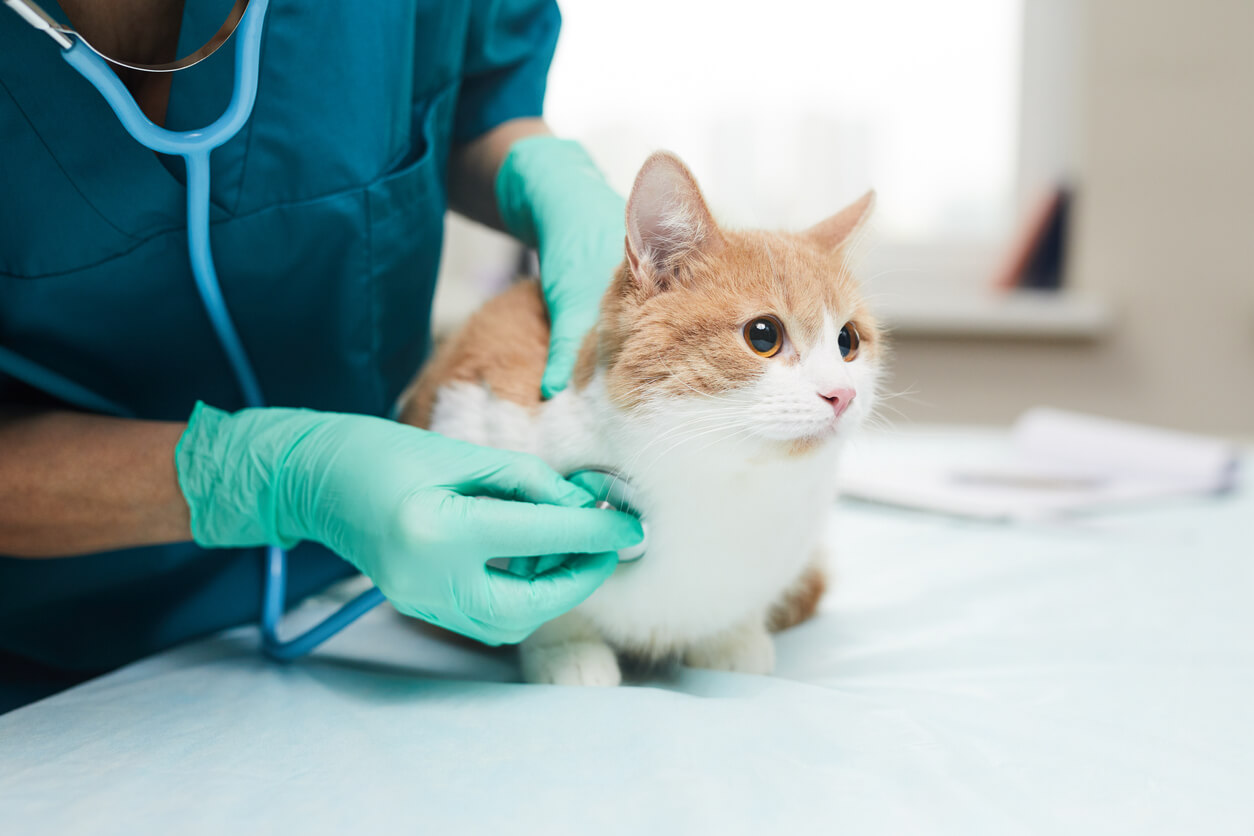Vaccination Standards From Your Trusted Veterinarian
Inoculation guidelines supplied by your relied on vet play a vital role in protecting your pet dog's health and wellness. Core vaccinations are essential for all pets, while non-core vaccinations can be tailored to ecological exposures and particular way of livings. Understanding the nuances of vaccination routines, which begin as very early as six to eight weeks, is necessary for optimal security. In addition, dealing with typical false impressions surrounding vaccines can additionally improve family pet owners' self-confidence in these safety nets. As we discover these crucial aspects, it becomes increasingly clear why normal consultations with your vet are essential for informed decision-making.

Importance of Vaccinations
Vaccinations play a critical duty in securing animals against an array of avoidable conditions. By stimulating the immune system to recognize and combat details virus, injections significantly minimize the incidence of contagious diseases that can affect a pet's health and longevity. Not only do vaccinations shield specific pets, however they also contribute to herd immunity, thereby reducing the total prevalence of diseases in the pet populace.
Timely inoculations assist to alleviate the spread of diseases such as rabies, parvovirus, and distemper, which can have serious effects for both animals and human beings. Inoculations are typically a requirement for boarding facilities, grooming solutions, and dog parks, making them essential for those who desire to mingle their animals.

Core Vaccines for Pets
While the particular vaccination demands of animals can vary based upon specific factors, core injections are widely suggested to safeguard versus one of the most typical and major diseases (Pet Health Checkup). Core injections are those regarded necessary for all animals, no matter their lifestyle or geographic location, as they safeguard versus potentially fatal and highly contagious illnesses
For pet dogs, the core vaccines include those for canine distemper, parvovirus, adenovirus (liver disease), and rabies. Adenovirus can result in liver disease, while rabies is a zoonotic condition that presents a risk to both human beings and family pets.
In cats, core injections incorporate feline panleukopenia, feline calicivirus, feline herpesvirus (rhinotracheitis), and rabies. Feline panleukopenia is a highly transmittable viral illness that affects the immune system and intestines. Calicivirus and herpesvirus are significant factors to upper respiratory system infections in pet cats, while rabies remains an essential issue for public wellness.
Talk to your vet to guarantee your pets get their core inoculations on schedule.
Non-Core Vaccines Explained
Non-core vaccinations are customized to address particular dangers related to an animal's way of living, atmosphere, and exposure to particular conditions. Unlike he said core vaccinations, which are universally advised for all pets, non-core injections are taken into consideration based on specific scenarios. These vaccines are particularly vital for pet dogs that might experience unique microorganisms because of their geographical location, travel habits, or tasks.
Examples of non-core injections include those for Bordetella bronchiseptica, which is connected to kennel coughing, and Lyme disease, brought on by ticks. Family pets that frequently interact with various other pets, such as those in boarding centers, pet dog parks, or grooming atmospheres, might benefit from Bordetella inoculation. If you live in a location where Lyme disease is prevalent, vaccinating against this condition can be a prudent option for outdoor-loving dogs.
Other non-core vaccinations may consist of those for leptospirosis, canine influenza, and feline leukemia, depending upon the certain risk variables present. It is vital to have a complete discussion with your vet regarding your pet dog's lifestyle and the prospective requirement for these injections, making sure a customized vaccination approach that best secures your fuzzy good friend.
Inoculation Schedule Overview

As animals develop, it is essential to abide by the recommended booster vaccinations. Veterinarian Enterprise. Recommended Site For grown-up animals, core vaccinations are generally given every one to three years, depending on the details vaccine and local guidelines. Non-core vaccinations may be encouraged based upon way of living factors and local illness occurrence, demanding a customized approach
Normal veterinary check-ups are important for upgrading inoculation routines. Your vet can give advice on one of the most appropriate booster shots for your pet, factoring in age, health status, and ecological risks. By staying positive and educated, family pet proprietors can guarantee their fuzzy buddies get prompt and reliable inoculations, thereby securing their health and wellness throughout their lives.
Common Myths Concerning Vaccines
False impressions about family pet inoculations can bring about confusion and hesitation amongst family pet proprietors pertaining to the booster shot procedure. One common misconception is that vaccines are unneeded for interior pet dogs. While it holds true that interior animals face reduced threats, they are not totally unsusceptible to illness, as virus can be presented through numerous methods, including human clothing and other animals.
Another false impression is that vaccinations can cause the illness they intend to stop. In reality, a lot of injections have inactivated or attenuated virus, which can not cause illness in healthy animals. Some family pet proprietors also think that their pet dogs should not be immunized if they are already healthy; however, inoculations are a proactive procedure that helps avoid the beginning of health problem.
Furthermore, many family pet proprietors fear that vaccinations will certainly lead to lasting health problems. The advantages of vaccination-- shielding pets from potentially life-threatening diseases-- much exceed the threats.
Conclusion
In recap, adherence to inoculation standards is important for ensuring the health and wellness and durability of pet dogs. Resolving common myths bordering vaccinations better enhances the importance of educated decision-making in animal care.
Not just do vaccinations protect private pets, yet they also add to herd resistance, thus lowering the overall occurrence of illness in the animal populace.
Misunderstandings about pet vaccinations can lead to complication and reluctance amongst pet proprietors pertaining to the booster shot process. While it's true that interior animals face reduced risks, they are not totally immune to diseases, as virus can be presented via different means, consisting of human apparel and various other pets.
Some pet dog proprietors likewise believe that their pets need to not be immunized if they are already healthy; however, vaccinations are a positive action that helps protect against the beginning of disease.
The benefits of vaccination-- protecting family pets from potentially dangerous illness-- far surpass the risks.